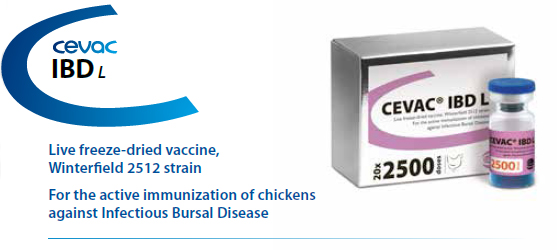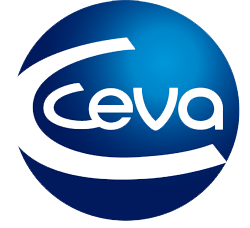
COMPOSITION
CEVAC® IBD L contains the Winterfield 2512 strain of Infectious Bursal Disease virus in live, freeze dried form. The embryonated hen eggs used in the production of the vaccine are obtained from specific-pathogen-free (SPF) flocks.
INDICATIONS
For the active immunisation of healthy chickens against the disease caused by classical and very virulent strains of Infectious Bursal Disease (Gumboro Disease).
ADMINISTRATION AND DOSAGE
CEVAC® IBD L must be administered by drinking water method. Broilers should be vaccinated with CEVAC® IBD L from 10 to 18 days of age, depending on the level of maternally derived antibodies. The exact date of vaccination can be determined by checking the level of antibodies by serological methods.
STORAGE
- Store vaccine between +2°C and +8°C or 35°F and 45°F
- Protect from light
PACKAGED
1,000 - 2,500 and 5,000 dose vials
20 x 1,000 dose vials / box
20 x 2,500 dose vials / box
20 x 5,000 dose vials / box










